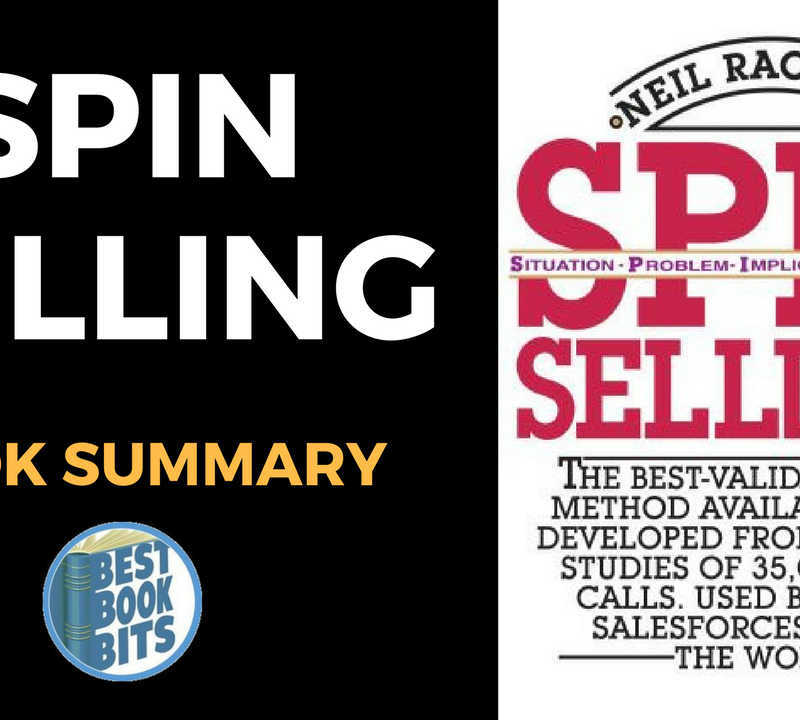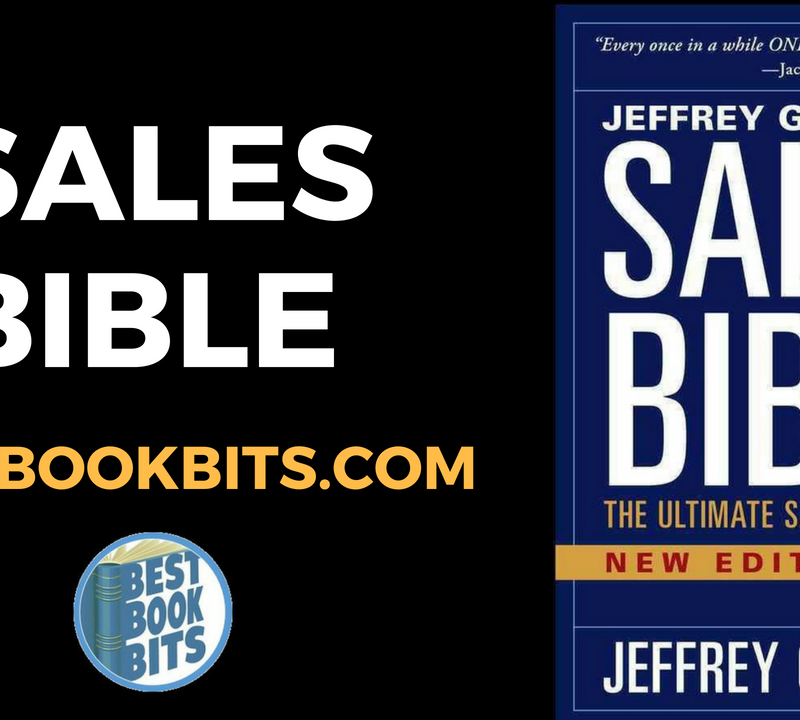★★★ Sign up to the Weekly Book Summary Newsletter by CLICKING HERE
★★★ Get any FREE audiobook of your choice by CLICKING HERE
- Introduction
- The way of the world is meeting people through other people, and the referral is the warm way we get into people’s lives.
- Your best clients want to meet you though an introduction from someone they already trust. That’s why the referral process should be your primary method for attracting new clients.
- The chances of making the sale were almost four times greater with referrals.
- Building your business from referrals is the best route to success.
- Tom Hopkins calls the referral the “backbone of prospecting for champions”.
- As you serve people better and create relationships of trust, a little proactivity on your part will yield many opportunities for all parties – opportunities that go beyond the buyer/seller relationship.
- Our economy is fast becoming a service economy. Many salespeople are selling services instead of products. Those who are selling products are also selling service to help distinguish their products from their competitors.
PART ONE: THE FOUNDATION: ADOPT A REFERRAL MINDSET
- Building a referral-based business is more than simply putting together a set of strategies and tactics. It’s a way of thinking. It’s a very specific style of doing business that begins with a commitment to building your business through relationships. Most salespeople and business owners dabble in referrals.
- Cold calling is God’s punishment for failure to get enough referrals.
- Your attitudes and assumptions toward referrals constitute the starting point toward building a successful referral-based business. You must adopt a referral mindset. Having this mindset means that you embrace referrals as the best way to build your business.
- The way of the world is meeting people through other people, and the referral is the warm way we get into their lives.
- Create relationships – true business friendships – and each side of the partnerships will continually work to serve the other.
- Selling should be a friendly act. Something we do to help people. Something we do with people and for people, not to them.
- The great thing about referrals is that when a prospect comes to you through a referral, tension is usually very low if non-existent. Referral marketing leads to tension-free selling.
- Listening is the most important relationship skill you can practice. It’s a relationship skill because everyone needs to be listened to. Everyone! When you listen to someone actively with good focus, that person can feel it. To build trust and rapport with prospects, clients, and referral alliances, listen well. In addition to its relationship-building properties, listening helps you learn about your prospects, clients, and referral alliances so you’ll be in a stronger position to serve them. Without good listening habits, you will miss many opportunities to serve them and yourself.
- Learn to manage your distractions. Becoming a focused and active listener is mostly a matter of managing distractions.
- People usually talk at about 100 to 120 words per minute, but you can think at 400 to 500 words per minute.
- Leaving referrals to chance is a crime against your business. (Roy Sheppard)
- What happens when you give? You receive! The law of reciprocity kicks in.
- The lifetime value of loyal clients is not just their repeat business. It’s also their ability to connect you with who they know. Never forget that every client has the ability to lead you to other clients.
- Have an attitude of leverage. As you enter into new relationships with prospects and clients, constantly looking for ways to leverage the relationship to produce many win/win situations.
- Trust is the grease of any relationship. It’s the most basic element that determines the quality of a relationship. It is the same with referrals. As prospects and clients find you more trustworthy, they will be more willing to give you referrals.
- Stop calling yourself a salesperson. Think of yourself as a serve person. You’re not there to sell, but to serve. (Joe Bonura)
- Do what you say you will.
PART TWO: THE FIRST SKILL: ENHANCE YOUR REFERABILITY
- The referral process cannot happen if you and your business are not referable. You and your business become referable when you provide your clients with a memorable experience.
- You must want to do it. You must have an attitude of service for your clients. An attitude of service is almost impossible to teach. You either have it or you don’t.
- Going the extra mile does not necessarily mean a lot of extra effort. It just requires caring and thinking about the needs of your clients; knowing your business and anticipating their needs and potential problems. (Shep Hyken)
- Your clients are happy when you meet their expectations. Your clients become loyal when you continually meet and exceed their expectations. Your clients become word-of-mouth machines when you create memorable experiences.
- In every business interaction we have, something is happening simultaneously on two levels: the human level and the business level. The business level gets the work done, while the human level is all about how the participant feels about the interaction.
- Those who fail, fail to follow through.
- Almost every business (although not all) has a repurchase cycle. Most people buy a new car within 3 to 5 years.
- Client satisfaction is the gap between what the client expects and what they get.
- Creating business friendships increases client loyalty and enhances your referability.
- Marketing genius Jay Abraham says that to lift yourself and your company above the competition:
- You cannot service too much
- You cannot educate enough
- You cannot inform too much
- You cannot offer too much follow-up and follow through too far.
- You cannot make ordering too easy.
- You cannot make calling or coming into your place of business too desirable.
- When something goes wrong – and it will – apologize. When you apologize, you’re not admitting fault, you’re just sorry your client is being inconvenienced. This reduces tension because it demonstrates that you are there for them. (Almost no one in business ever says they’re sorry.) Then, immediately after you apologize, fix the problem as quickly as possible.
- A relationship that’s had a problem handled well is a stronger relationship than one that’s never had a problem.
- A true friend is someone who walks in when others walk out. (Walter Winchell)
- Remember: You are your company’s client service department.
PART THREE: THE SECOND SKILL: PROSPECT FOR REFERRALS
- Great movies use foreshadowing. So do great salespeople.
- Tell your prospects and clients, “I’m never too busy to see if I can help any of your friends, family members, or colleagues.”
- You must ask for referrals at the right time, and not a minute before.
- If you want to truly leverage the lifetime value of your clients, you must continue to stay in contact with them, continue to provide value in any way you can, and continue to ask them for referrals.
- The three keys to asking prospects for referrals are. 1) Serve them before you sell them. 2) Plant seeds that you are building your business from referrals. 3) When the rapport is good, as them directly for referrals.
- Not every sale is finalized during the first or second appointment. In fact, many times the sales process is a long-term one, taking months or even years to be consummated. Certainly during that time you have many opportunities to gain the confidence, trust, and respect of your prospect in order to ask for a referral. Not only that, a completed sale to a referred client can strengthen the resolve of the potential buyer who referred you in the first place. (Dennis Fox)
- Ask questions whose answers end with a person’s name. (Phil Simonides)
- Quantity is great. Quality is even better.
- Our assumptions drive our behaviour. Trouble is, most of the time our assumptions are wrong.
PART FOUR: THE THIRD SKILL: STRATEGIC NETWORKING
- Be a serve person first, and a salesperson second.
- When meeting a networking prospect for the first time, invest 99.9 percent of the conversation in asking questions about that person and their business. They want to talk about their business, not yours – let them. The people who we find most interesting are the people who seem most interested in us. (Bob Burg)
- Are you waiting to talk or waiting to listen?
- Those who fail to follow up usually fail.
- I truly believe that as our capacity for gratitude grows, our ability to give grows. And givers always make a great connection.
PART FIVE: THE FOURTH SKILL: TARGET NICHE MARKETS
- Marketing strategy is what gets you to the client’s door in the best possible light. Sales strategy is what you do when you are inside. (Bill Brooks)
- Word of mouth is much easier to create. A create reputation with people saying good things about you behind your back is the most effective way to ensure sustained success.
- People buy what’s familiar. The old story of the young man who joined the military and was stationed overseas for a year. Before he left, he brought 365 postcards. He mailed one to his girlfriend every day. For about 10 months, she wrote back regularly. Then her letters stopped. When the young man returned home, he found his girlfriend married to the mailman. People buy what’s familiar.
- The secret to success is “meeting people through other people.”
- Failing to plan is like planning to fail.
- I don’t know what your destiny will be, but one thing I know, the only ones among you who will be really happy are those who have sought and found how to serve. (Albert Schweitzer)
- If you don’t have an attitude of service, your ability to gain referrals will be severely limited. Zig Ziglar says it this way: “You can get everything in life you want, if you just help enough other people get what they want.”
- To exceed your clients’ expectations, you must understand their expectations. You must discover why you got their business, how the other guy lost their business, what it will take to make them happy, and what it will take to keep them happy. With this knowledge, you can make them say “Wow!” every time you serve them.
- Don’t run away from the problems. When a problem arises, don’t even flinch. Just be there and start working for a solution as best you can. Make it easy for clients to complain; in fact, encourage it. Remember: A relationship that’s had a problem that’s been handled well is a stronger relationship than one that’s never had a problem.
- Help clients reduce their stress. Make dealing with you an oasis in their busy lives. Anticipate their needs, discover their stresses, and serve them beyond their expectations.
- Ask for their help in helping others.
- Successful people are interdependent, not independent. (Richard Weylman)
- Experiences are memorable. Memorable experiences create word of mouth.
To buy the book, click the link in the image below to purchase from Amazon.














